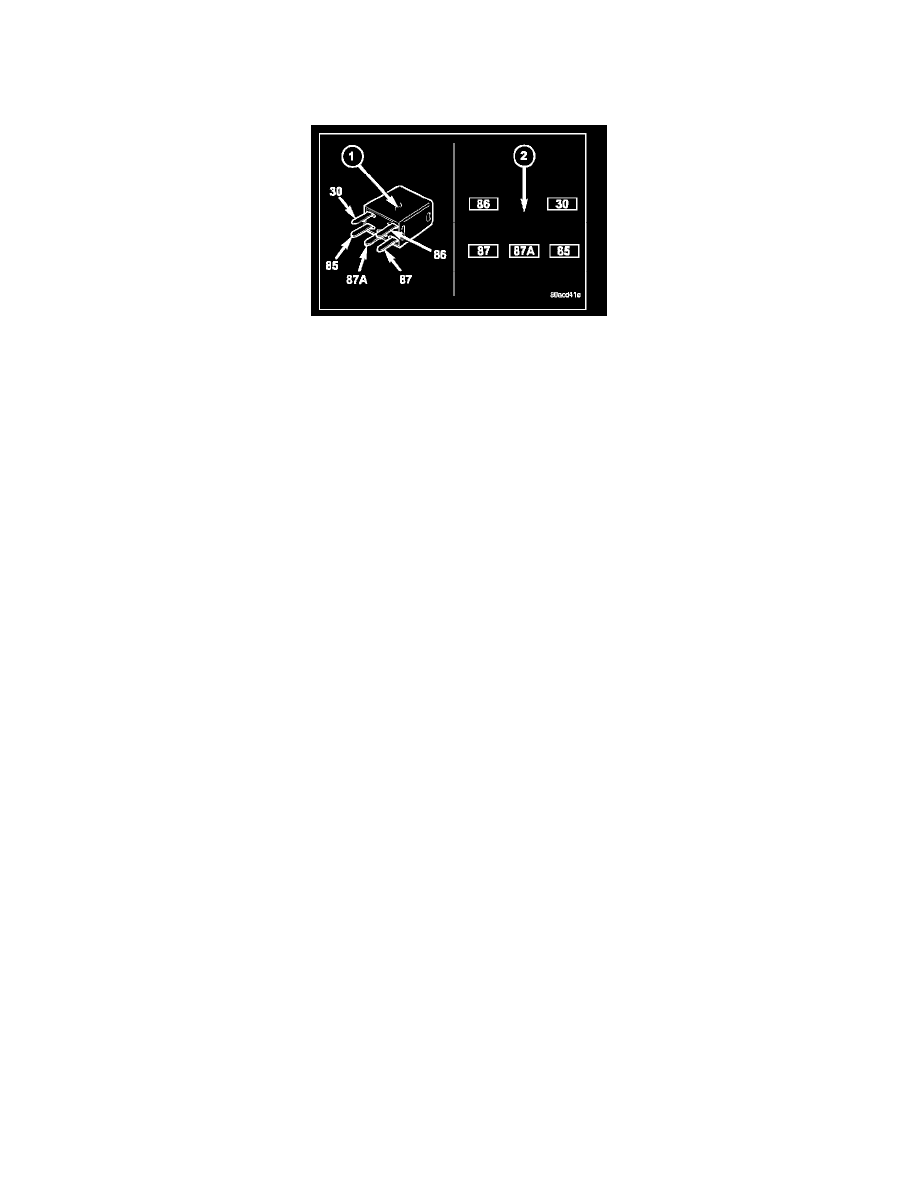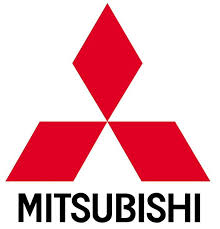Raider V6-3.7L SOHC (2006)

Heated Glass Element Relay: Description and Operation
RELAY - REAR WINDOW DEFOGGER
DESCRIPTION
The rear window defogger (EBL) relay (1) is a International Standards Organization (ISO) micro-relay. Relays conforming to the ISO specifications
have common physical dimensions, current capacities, terminal functions and patterns (2). The ISO micro-relay terminal functions are the same as a
conventional ISO relay. However, the ISO micro-relay terminal pattern (or footprint) is different, the current capacity is lower, and the physical
dimensions are smaller than those of the conventional ISO relay. The EBL relay is a electromechanical device that switches battery current through a
fuse located in the integrated power module (IPM) to the rear window defogger grid and when equipped, switches battery current through another fuse
located in the IPM to the outside mirror heating grids. The EBL relay is energized when the relay coil is provided a ground path by the control circuitry
within the front control module (FCM). The EBL relay is located in the IPM in the engine compartment.
OPERATION
The ISO-standard rear window defogger (EBL) micro-relay is an electromechanical switch that uses a low current input controlled by the front control
module (FCM) to control the high current output to the rear window defogger grid lines. The movable, common feed relay contact is held against the
fixed, normally closed relay contact by spring pressure. When the electromagnetic relay coil is energized, it draws the movable common feed relay
contact away from the fixed, normally closed relay contact and, holds it against the fixed, normally open relay contact. This action allows high current to
flow to the rear window defogger grid lines.
When the relay coil is de-energized, spring pressure returns the movable relay contact back against the fixed, normally closed contact point. The resistor
or diode is connected in parallel with the relay coil, and helps to dissipate voltage spikes and electromagnetic interference that can be generated as the
electromagnetic field of the relay coil collapses.
The EBL relay terminals are connected to the vehicle electrical system through a receptacle in the integrated power module (IPM). The inputs and
outputs of the EBL relay include:
-
The common feed terminal (E) receives fused battery current through a B(+) circuit at all times.
-
The coil ground terminal (D) receives a ground input from the FCM through the EBL control circuit only when the FCM electronically pulls the
control circuit to ground.
-
The coil battery terminal (B) receives fused battery current through the ignition switch circuit only when the switch is in the Run position.
-
The normally open terminal (A) provides battery current to the rear window defogger grid lines through the EBL relay output circuit only when the
EBL relay coil is energized.
-
The normally closed terminal (C) is not connected to any circuit in this application, but provides a battery current output only when the EBL relay
coil is de-energized.
The EBL micro-relay cannot be repaired and, if faulty or damaged, it must be replaced. Refer to the appropriate wiring information for diagnosis and
testing of the ISO-standard micro-relay and for complete rear window defogger (EBL) wiring diagrams.
